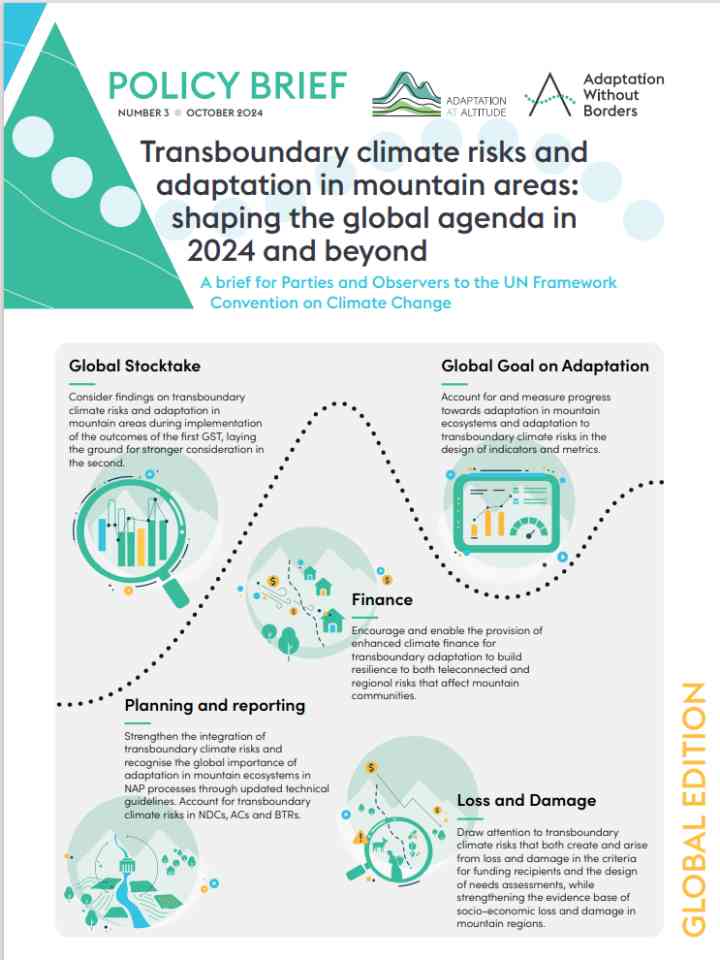Transboundary climate risks and adaptation in mountain areas: shaping the global agenda in 2024 and beyond-A brief for parties and observers to the un framework convention on climate change
The brief, developed with Adaptation without Borders and Adaptation at Altitude, highlights opportunities for UNFCCC Parties and Observers to address transboundary climate impacts and adaptation in mountain areas, where cascading risks affect water, food, and trade across borders. Relevant negotiation tracks include the Global Stocktake, Global Goal on Adaptation, Finance, Planning and Reporting, and Loss and Damage. With these risks recognized in the Paris Agreement, urgent action is needed in governance, funding, and cooperative adaptation strategies, especially in globally beneficial mountain ecosystems.
Key recommendations are as follow:
- Enhance governance: establish cooperative, transboundary policies to manage interconnected climate risks effectively.
- Increase funding: prioritize and expand financing for mountain-focused adaptation initiatives, leveraging international cooperation.
- Strengthen research and Indicators: develop robust indicators for tracking and assessing cross-border risks and adaptation progress.
- Integrate transboundary adaptation in National Plans: ensure that National Adaptation Plans (NAPs) include strategies for managing climate impacts in shared ecosystems like mountains.
- Promote inclusive partnerships: engage local communities, including Indigenous populations, in co-designing adaptation strategies to ensure equitable and locally relevant outcomes.
Explore further
